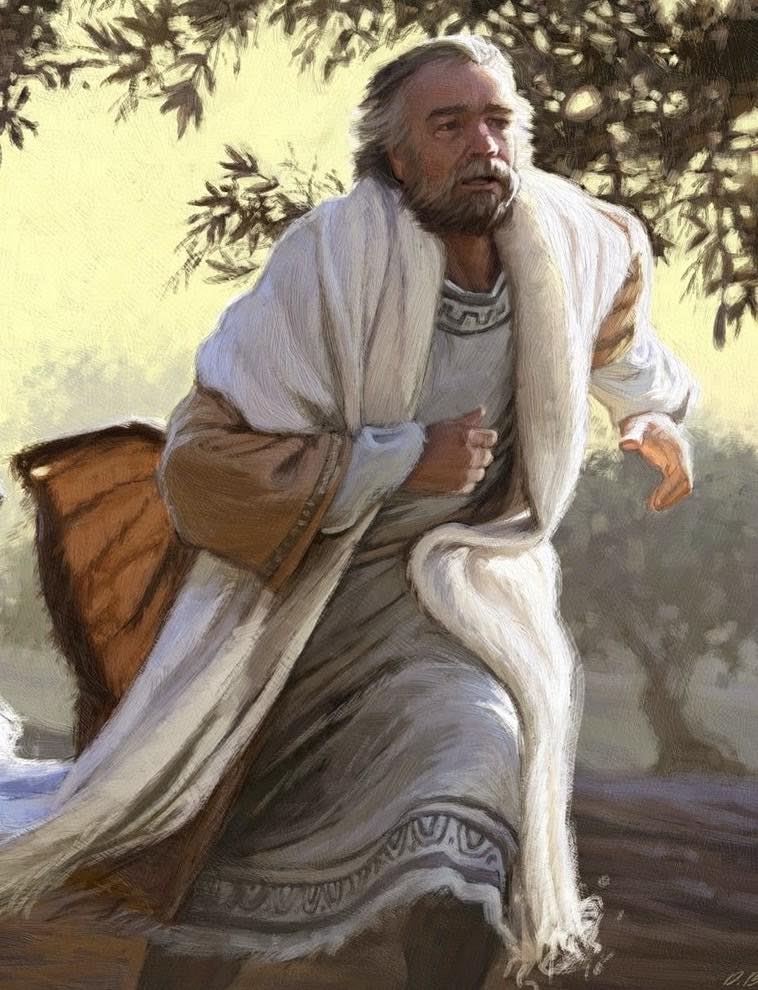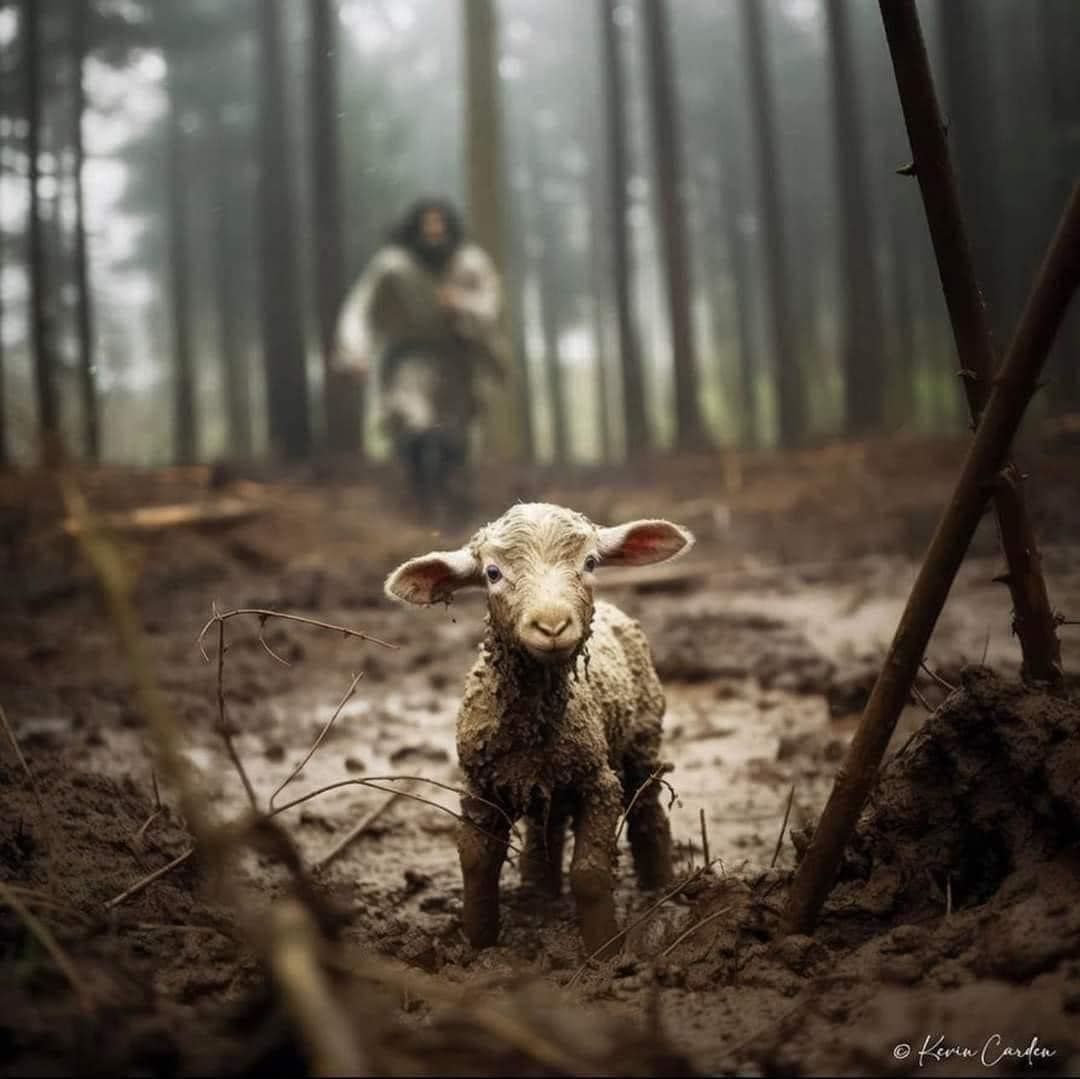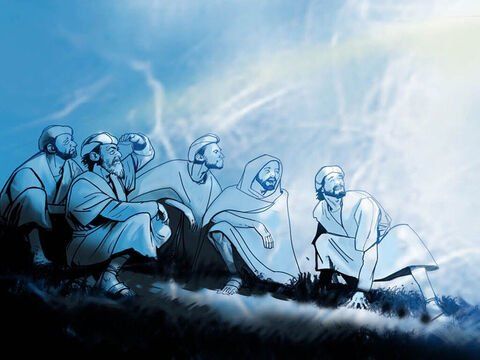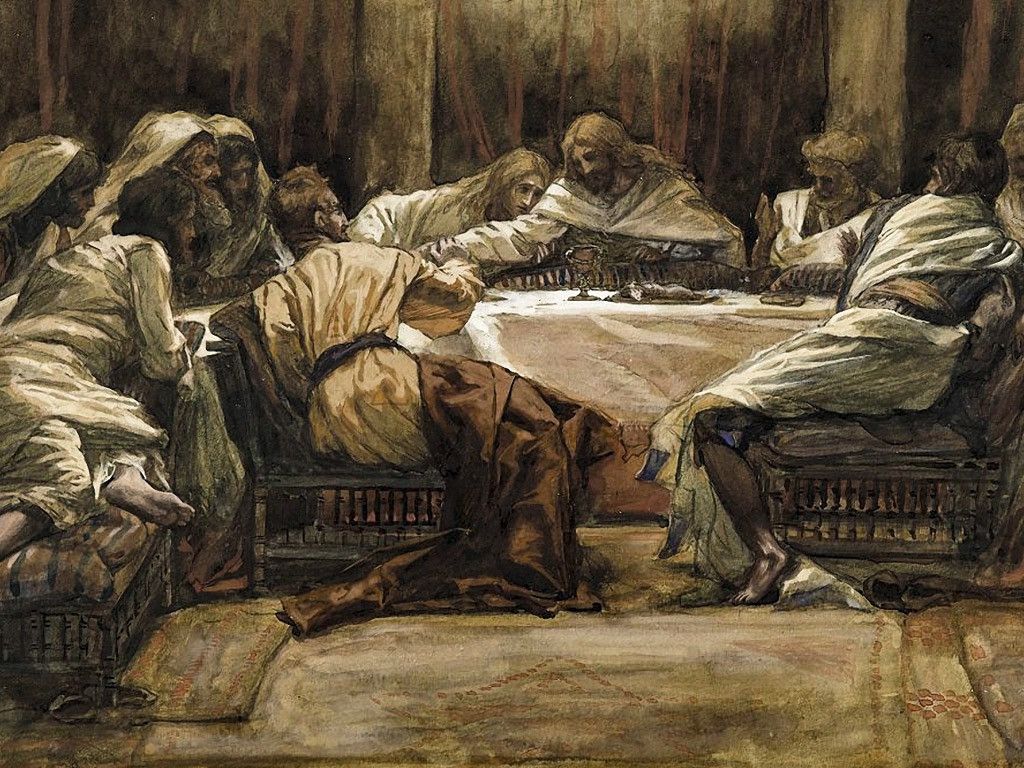Outrageous, counter-cultural Love
“When he was still a great way off, his father saw him and had compassion, and ran and fell on his neck and kissed him” (Luke 15:20).
This picture of the prodigal son’s father made a big impact on me, so I’d like to share it with you, too. It opened up messages in the well-known parable that I hadn’t even thought about before, especially when I saw them from the perspective of the Jewish culture of the time. (The picture appears full-length below).
Jesus told this parable (recorded in Luke 15:11-32) chiefly to illustrate the extremely counter-cultural, self-emptying love that God has for every single one of us. It shows how God offers us outrageous grace, as He also does, of course – most supremely – upon the cross. I think parts of the story would indeed be considered outrageous in most cultures, but especially so within the Middle Eastern society of Jesus’ day. Those who were physically present with Jesus at the time would have been shocked to the core by the details He shared about the life of one landowner father and his two sons.
Jesus began the story by explaining that the younger of the two sons went to his father and said, “Father, give me my share of the property that will come to me” (Luke 11:12, PHILLIPS). That sort of request was, and still is, utterly taboo while the parent is still alive. In making it, the son was effectively saying, “Father, please die so I can get my inheritance straight away.” In the face of such a dreadful request, the cultural norm would have required the father to cast his son out of the family and to cut him off from any future inheritance. Instead, however, the father did something which would have horrified his neighbours and community: he actually agreed to the request and – in total vulnerability – gave away his entire estate, dividing it between his two sons.
The younger son sold his part of the estate and ended up squandering his fortune in a distant country and he fell upon extremely hard times. Then Scripture says, “He came to himself” (Luke 11:17) and he began to think about his father’s many hired servants who had plenty to eat, while he himself was labouring in a Gentile field looking after pigs, and starving. He worked out a survival plan: He would go back home and say to his father that he had sinned and was no longer worthy to be called a son. Then he planned to say, “Please take me on as one of your hired men” (Luke 11:19, PHILLIPS).
There’s no clear indication that the younger son actually repented, at that point, for what he had done. The words used of his actions are “come” and “go” but the word “repent” doesn’t feature at all in Jesus’ account. It seems as though the younger son – although deeply ashamed and humiliated – was still thinking in terms of being able to fix his problems himself and earn enough money to survive by working as his father’s servant.
There’s so much to reflect on here. One thing that strikes me is that while true sonship requires full surrender of self with the attitude, “I of myself can do nothing”, the opposite of true, surrendered sonship – pride – is very different. Pride feels more comfortable with servanthood, even though the servant role may appear humble and even humiliating. The thing is that servanthood can exhibit by-the-book obedience that ticks all the “appearance” boxes while the heart remains self-centred and unsurrendered. I find that very convicting! it makes me search my own heart and it flags up areas that I’m still trying to control in my own strength!
(NB. There is of course a sacred and beautiful form of servanthood which flows from sonship, in willing devotion to Jesus.)
Whatever was going on his son’s heart, it’s vital to notice that the father wasn’t waiting to assess his son for signs of repentance or indeed change of any kind. No, as soon as he caught a glimpse of his boy, he raced out of the house in whatever-it-takes haste to lavish his love upon his son. His love was absolutely unconditional. Jesus said: “When he was still a great way off, his father saw him and had compassion, and ran and fell on his neck and kissed him” (Luke 15:20).
So the father left the privacy of his house and ran out in full view of the community which would have known the shame inflicted on the family and would most likely totally reject the younger son. It’s important to bear in mind, too, that the son was in a terrible state, having been reduced to looking after pigs which are disgusting to Jewish sensitivities.
The risk of dishonour in front of his community did not stop the father from ignoring the shame involved in all of this. In addition, the fact that he actually broke into a run to reach his son would have shocked his neighbours all the more. In that culture, it was humiliating to move publicly in anything other than a calm and dignified manner, and it was considered shameful to have to pull up his tunic and expose his bare legs in order to run. But he did it anyway. The only thing that mattered was to reach his beloved son.
The father willingly took upon himself the full weight of shame that should have fallen on his son. By his actions, he declared to his family and to his community that this young man was more than welcome back home – as a fully restored, honoured and deeply loved son.
The whole parable radiates God’s passionate, all-out, redemptive love. Love that transcends all human cultures, laws and traditions. Love that crashes through every barrier of sin, failure, confusion, betrayal and pain. Love that can redeem and transform every seemingly impossible situation in our lives. Absolutely nothing can hold back the ocean tide of the Father’s relentless love!
By Ann Shakespeare 28 January 2023
I'd like to credit this picture but have been unable to find any information about it. If you're able to shed light, please drop me a note - I would be very grateful!
"Arise, shine;
For your light has come!
And the glory of the Lord is risen upon you."
(Isaiah 60:1)
© 2023 Ann Shakespeare Hopkins (Author name Ann Shakespeare) . All rights reserved. A Christian resource ministry sharing the Good News of Jesus Christ
Website developed with www.everydaychristianmarketing.co.uk












